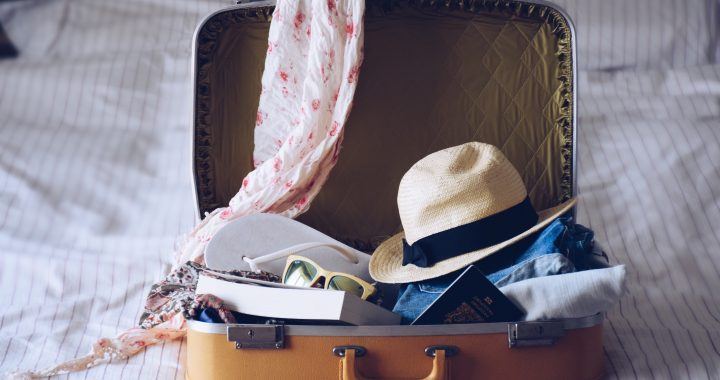Wave goodbye to holiday bugs: Be prepared with Dr Morton’s Travel Pack®
Written by Dr Karen Morton, Consultant Gynaecologist and Obstetrician, and Founder of Dr Morton’s – the medical helpline©
Travelling Pains
It’s a truth that ‘travelling is difficult’. Whether it’s sitting at the airport for hours because of a delayed flight, leaving your favourite hat in the overhead locker, or your suitcase not arriving at your destination; we all know it’s true, and it often puts your relationship with your travelling companion to the test!
Illness is another sure-fire thing to rear its head. Delhi-belly does not have its name for no reason; and a fortnight of eating food with which our tummies are not familiar is bound to take its toll quite apart from the bugs we will meet. Exposure to infection during a romp on the beach after a midnight party where the rose meant you couldn’t quite get to the condom in time can have lasting, life-changing consequences to fertility. Cystitis is one thing, but rip-roaring chlamydia is another!
So, be prepared!
Take some urine dip-tests with you so you know if the bladder is just feeling sore or you actually have a urinary tract infection. Drink plenty obviously, but if the test is positive, take the right antibiotic as soon as possible.
If you develop diarrhoea which is not settling after 24 hours you should take the right antibiotic for the travellers’ diarrhoea which is prevalent in the region of the world you are in. Travel prepared! Keeping hydrated is the main priority in all such cases and keeping your blood chemistry in balance is also important. You lose a lot of potassium in vomit and diarrhoea so a good rehydration electrolyte sachet will be needed to replace what you’ve lost. Don’t wait until you are incapacitated ……..have it in your washbag. Usually the diarrhoea has to run its course, but if you are having to travel you might be able to slow it down with some anti-diarrhoea medicine.
It’s very important to avoid fatty foods when you feel you can start eating again. Your gut ‘has to work’ to absorb fatty food so stick to bland foods like plain rice and dry bread to start with.
The sex on the beach scenario without grabbing the condom should lead you to take a preventative dose of anti-chlamydia medication. A single dose will do it.
Why is a travel pack necessary?
Dr Karen Morton, the Founder of Dr Morton’s – the medical helpline©, founded the service because a patient of hers flew out to Bangkok to bring her 19-year-old daughter home with dreadful abdominal pain.
‘I admitted her to hospital and under anaesthetic I put a telescope into her abdomen and there I saw a severe case of chlamydial infection which had caused her fallopian tubes to be completely blocked. Her gynaecological organs were a mess and would never be the same again. I decided to empower women with the right medicines to take travelling with them, just as a doctor would.’
Then there is the consequence of relaxing and catching up with your love-life which has been largely on hold with all the stresses and strains of life. The urethra may simply shout due to all that friction (don’t forget plenty of Sylk lubricant) or the shortness of the female urethra (only 3-4 cms) may lead to bacteria literally being massaged up towards the bladder. Being chronically slightly dehydrated due to hot weather and therefore not washing the bladder through so quickly makes the likelihood of bacteria multiplying much greater. Remember to drink a glass of water for every glass of alcohol you drink, and always take bottled water with you during the day.
Hot sweaty crotches and feet lead to yeast infections. Getting clean and dry is important in these areas, and some anti-fungal cream is a must in a holiday washbag. An oral tablet for women with thrush may also be useful.
We’ve all experienced the angry, hot, red spreading swelling around a particularly nasty mosquito bite. Even though we have taken the right preventative antimalarials, scratching the skin may lead to a staphylococcal infection of the injured skin. Try not to scratch! If it does start to spread this is a form of cellulitis and it may well need an antibiotic to treat staphylococcus with a steroid component to dampen down the itch.
What if I can’t fix it myself?
It is really bad luck to have an injury or an illness which you cannot manage yourself whilst on holiday or travelling overseas. Lots of people think that carrying the odd hypodermic needle will be helpful but really that’s nonsense. If you are ill enough to need intravenous treatment, then an iv giving-set and a few needles is not going to help you. You will have to seek medical help at the nearest local facility; but being able to ring a great doctor back in the UK is wonderfully reassuring!




